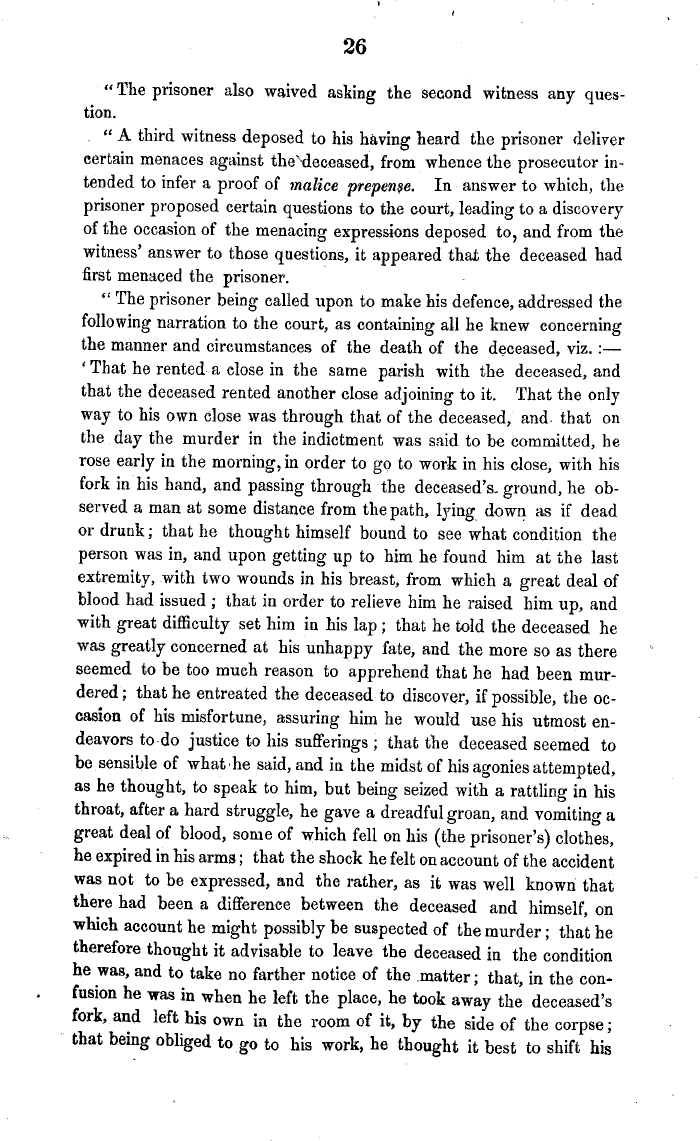|
i
26
« The prisoner also waived asking the second witness any ques-
tion.
°` A third witness deposed to his having heard the prisoner deliver
certain menaces against the-deceased, from whence the prosecutor in-
tended to infer a proof of malice prepenye. In answer to which, the
prisoner proposed certain questions to the court, leading to a discovery
of the occasion of the menacing expressions deposed toy and from the
witness' answer to those questions, it appeared that the deceased had
first menaced the prisoner.
" The prisoner being called upon to make his defence, addressed the
following narration to the court, as containing all he knew concerning
the manner and circumstances of the death of the deceased, viz. :-
`That he rented a close in the same parish with the deceased, and
that the deceased rented another close adjoining to it. That the only
way to his own close was through that of the deceased, and. that on
the day the murder in the indictment was said to be committed, he
rose early in the morning, in order to go to work in his close, with his
fork in his hand, and passing through the deceased's- ground, he ob-
served a man at some distance from the path, lying, down as if dead
or drunk; that he thought himself bound to see what condition the
person was in, and upon getting up to him he found him at the last
extremity, with two wounds in his breast, from which a great deal of
blood had issued ; that in order to relieve him he raised him up, and
with great difficulty set him in his lap; that he told the deceased he
was greatly concerned at his unhappy fate, and the more so as there
seemed to be too much reason to apprehend that he had been mur-
dered ; that he entreated the deceased to discover, if possible, the oc-
casion of his misfortune, assuring him he would use his utmost en-
deavors to-do justice to his sufferings ; that the deceased seemed to
be sensible of what,he said, and in the midst of his agonies attempted,
as he thought, to speak to him, but being seized with a rattling in his
throat, after a hard struggle, he gave a dreadful groan, and vomiting a
great deal of blood, some of which fell on his (the prisoner's) clothes,
he expired in his arms ; that the shock he felt on account of the accident
was not to be expressed, and the rather, as it was well known that
there had been a difference between the deceased and himself, on
which account be might possibly be suspected of the murder; that he
therefore thought it advisable to leave the deceased in the condition
he was, and to take no farther notice of the .matter; that, in the con-
fusion he was in when he left the place, he took away the deceased's
fork, and left his own in the room of it, by the side of the corpse;
that being obliged to go to his work, be thought it best to shift his
|

